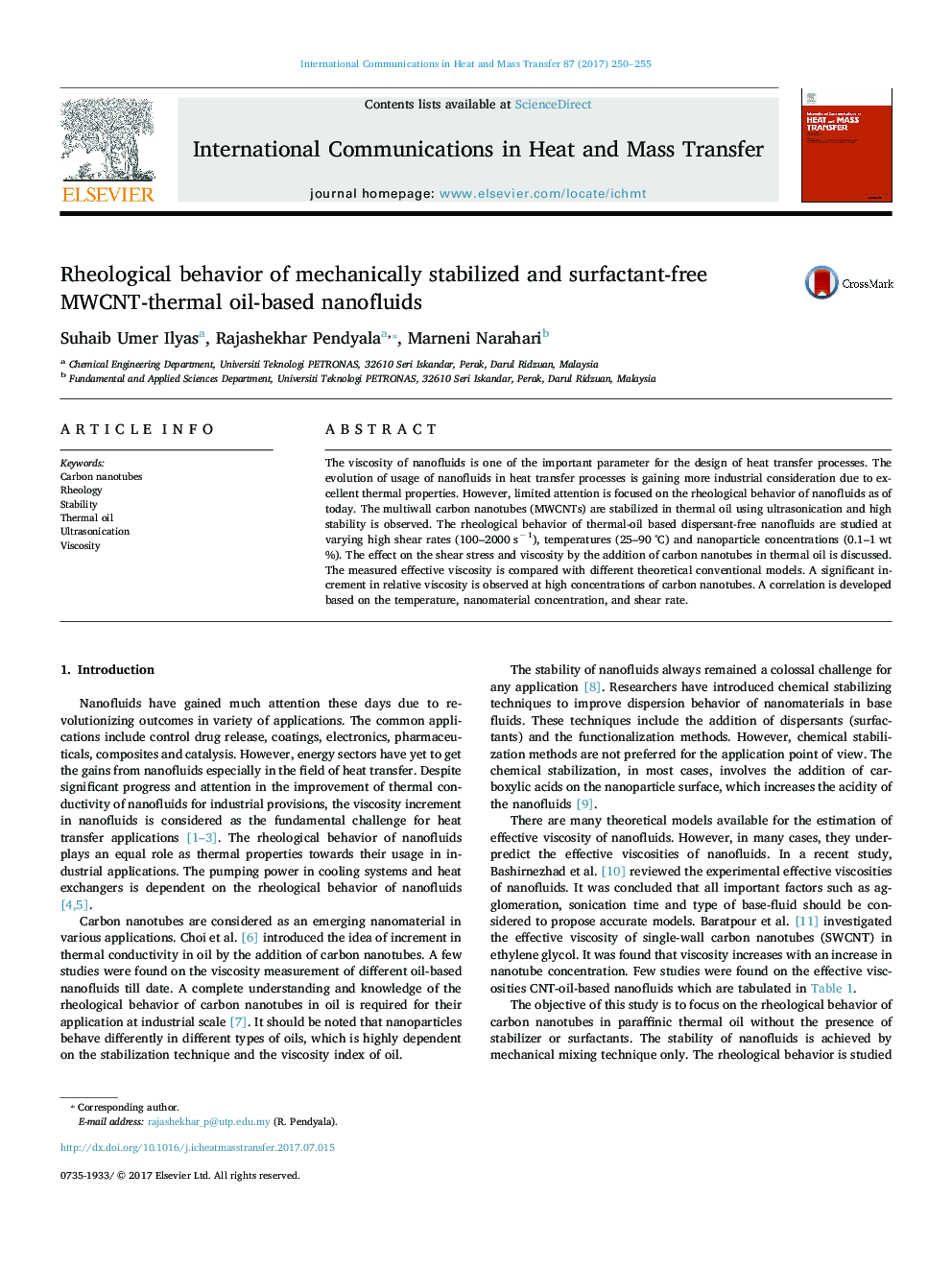| Article ID | Journal | Published Year | Pages | File Type |
|---|---|---|---|---|
| 4992834 | International Communications in Heat and Mass Transfer | 2017 | 6 Pages |
Abstract
The viscosity of nanofluids is one of the important parameter for the design of heat transfer processes. The evolution of usage of nanofluids in heat transfer processes is gaining more industrial consideration due to excellent thermal properties. However, limited attention is focused on the rheological behavior of nanofluids as of today. The multiwall carbon nanotubes (MWCNTs) are stabilized in thermal oil using ultrasonication and high stability is observed. The rheological behavior of thermal-oil based dispersant-free nanofluids are studied at varying high shear rates (100-2000 sâ 1), temperatures (25-90 °C) and nanoparticle concentrations (0.1-1 wt%). The effect on the shear stress and viscosity by the addition of carbon nanotubes in thermal oil is discussed. The measured effective viscosity is compared with different theoretical conventional models. A significant increment in relative viscosity is observed at high concentrations of carbon nanotubes. A correlation is developed based on the temperature, nanomaterial concentration, and shear rate.
Related Topics
Physical Sciences and Engineering
Chemical Engineering
Fluid Flow and Transfer Processes
Authors
Suhaib Umer Ilyas, Rajashekhar Pendyala, Marneni Narahari,
